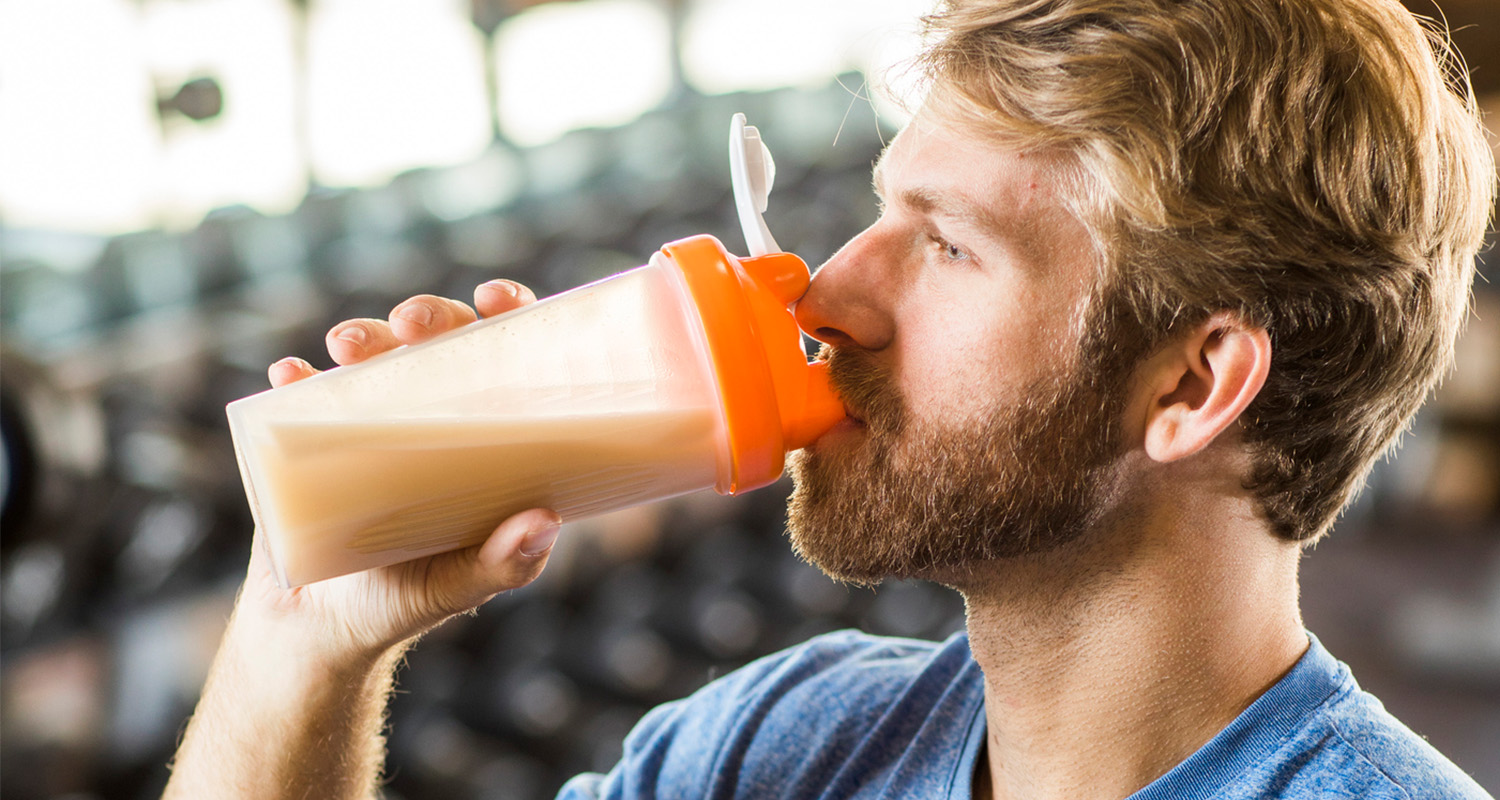- Creatine is a popular dietary supplement that has been used by bodybuilders for decades to support increased muscle mass and athletic performance.
- Creatine increases mitochondrial energy production. This extra energy can enhance cognitive function, muscle strength and athletic performance.
- Learn more about the benefits of creatine, including how it can boost your brain. Plus, you’ll find answers to frequently asked questions about creatine.
For years, the strength training and fitness community has been open about the benefits of creatine for weight gain and muscle building. At the same time, many people use creatine to enhance their athletic performance. However, despite being one of the most commonly used nutritional supplements, there are still some misconceptions about creatine.
However, there is plenty of research to support the idea of adding it to the stack. In fact, although creatine is often associated with muscle building, it also offers potential benefits that don’t involve heavy lifting or high-intensity exercise.
We’ll explore the science behind this supplement, including how it can support your body and brain. While we can’t make any guarantees about your future earnings, we can guarantee that you’ll take your creatine knowledge to a whole new level.
What is Creatine?

Before we delve into the benefits of creatine, it’s important to understand exactly what it is. While many people associate creatine with sports supplements, it’s actually a natural compound made up of three amino acids: arginine, glycine, and methionine.
Creatine is primarily produced in the liver and kidneys, and is also synthesized in the pancreas. There are actually two forms of creatine in the body, the phosphorylated form accounting for 60% and the free form accounting for the other 40%. Your skeletal muscles contain 95% of your creatine reserves, which you can use for energy.[1]
Our phosphocreatine system plays an important role in energy, especially during physical activity. While eating red meat is a great way to boost your muscle creatine stores (uncooked muscle contains 3-6 grams of creatine per kilogram), supplementing with red meat can also help unlock some science-backed benefits.[2]
RELATED: What Is Collagen?Your Complete Guide to Collagen Peptides
Creatine Benefits

Creatine is one of the most researched and utilized dietary supplements. But while weightlifters and bodybuilders may benefit from it, you don’t need to consider body composition or muscle size goals to make it part of your routine.
In fact, supplementing with creatine can not only help your body, but also your brain.
Supports Cellular Energy Production
When you contract a muscle, the first supply of energy absorbed by the muscle comes from the phosphogen system. You use this system when you need quick power – for example, you need to lift a dresser to the back of a truck. You get energy from small amounts of adenosine triphosphate (ATP) in your muscles.
When you use ATP for energy, it is broken down into adenosine diphosphate (ADP), but you don’t use it for energy because it doesn’t contain the correct amount of phosphate. ADP will eventually replenish as available ATP, but it will take a while. This is where creatine comes into play. Your body stores creatine in your muscles as creatine phosphate,[3] It uses phosphate groups to recycle those spent parts (ADP) into shiny new ATP.[4]
In addition, creatine improves mitochondrial function by increasing adenosine monophosphate kinase (AMPK) signaling. When your energy drops, AMPK activates energy uptake from glucose and fatty acids.[5] (If you’re in ketosis, this is the part where you burn a lot of fat.)
One study showed that creatine activates AMPK and turns on the gene that creates new mitochondria and releases the enzyme to scavenge harmful free radicals.[6] Both processes protect your mitochondria from damage.[7]
Related: Is Beta-Alanine Worth It For Building Muscle and Workout Performance?
Helps build muscle mass
The limiting factor in the weight room is fatigue and failure, both of which are directly related to how much energy the mitochondria can produce. You use ATP faster than you can recycle it, so using creatine to make this process more efficient will make your entire resistance training program more efficient. More energy means you can work out harder and get better results.
In addition to energy, creatine activates multiple muscle-specific cellular pathways that promote muscle growth:
- When combined with weight training, creatine increases myonuclei (the nuclei in muscle fibers). More myonuclei means more growth. The coolest part is that even when you rest and lose strength during training, you retain the extra myonuclei you created.[8][9]
- Creatine supplementation during resistance training increases insulin-like growth factor, which stimulates muscle growth.[10]
- Creatine activates protein kinase, which assembles skeletal muscle-building proteins.[11]
- Creatine supplementation may help older adults increase lean tissue mass and upper and lower body muscle strength during resistance training. [12]
improve sports performance

Whether you’re doing endurance training or high-intensity interval training (HIIT), creatine can provide a significant boost. After all, improving athletic performance is one of its main benefits.
A study of 19 healthy men who underwent resistance training showed increases in body weight, lean body mass, and physical performance over a 12-week period. The creatine-supplemented group lifted significantly more weight on average in the bench press compared to the placebo subjects, further supporting the effect of using creatine to get the most out of your workout.[13]
Increases Cellular Hydration
Creatine has received some criticism for causing water retention. To some, this may seem like no benefit, as you’re not actually gaining muscle mass. But the reality is, extra hydration isn’t just for round, full muscles.
Hydrated muscle cells prevent protein catabolism.[14] Proper cellular hydration is a key factor that may be overlooked since many athletes and fitness enthusiasts seek to increase muscle mass.
Supplementation with creatine monohydrate not only increases intramuscular concentrations, but also increases total body water, allowing more fluid to be drawn into the muscles.[15]
RELATED: What’s the Best Way to Stay Hydrated?Focus on Cellular Hydration
Supports Enhanced Athletic Performance
No matter what sport you choose, by supplementing with creatine, you can put yourself in a better position to succeed. Regenerating ATP faster between high-intensity workouts improves performance and promotes better training adaptations.[16]
A meta-analysis of more than 500 studies on the effects of creatine supplements supports its exercise-enhancing capabilities. For example, short-term supplementation has been reported to increase maximum strength and power, single sprint performance, and work done during repeated sprint performances.[17] Ultimately, creatine can be used as a tool to aid exercise performance and athletic effort.
Positively impacts brain performance
There’s no doubt that creatine helps you build muscle. There are also studies showing that it can also help support cognitive function.
In a double-blind, placebo-controlled study of 45 young vegetarians, oral creatine supplementation was shown to benefit their brains. A six-week regimen of 5 grams per day had a significant positive effect on their working memory and intelligence.[18]
While it is worth noting that the subjects did not obtain creatine from the meat-free diet, it is also important to note the effect of creatine supplementation on tasks requiring processing speed. Essentially, the study supports the role of brain energy capacity (enhanced by creatine) in influencing brain performance.
Creatine FAQs

1. How to increase creatine intake?
Your body produces creatine, so you always have some on hand. For an extra boost of energy, eat grass-fed beef, lamb, and pork. Wild-caught fish also contains creatine, but at lower levels than red meat and pork. In addition to or instead of these food sources, you can take a daily supplement of 5 grams of creatine monohydrate.
2. What is the creatine loading phase? is it necessary?
The creatine loading phase typically involves taking 10-20 grams per day for the first week. Whether you’re weight bearing or not, your muscles reach saturation by 3-4 weeks, which means they’ve absorbed all they can. The creatine loading phase isn’t necessary, but it can be a useful way to speed up the process so you get a return sooner.[19]
3. When is the best time to take creatine?
There is no one-size-fits-all approach to when to take creatine. You can take it pre-workout, of course, but you can also add it to your post-workout shake or smoothie. However, a study of the effects of pre- and post-exercise creatine monohydrate supplementation on body composition and strength suggests that post-exercise creatine monohydrate supplementation may be more beneficial.[20]
4. Are there any side effects of creatine supplementation?
According to the International Society of Sports Nutrition, there is no convincing scientific evidence that short- or long-term use of creatine monohydrate produces any harmful effects in healthy individuals or clinical populations who may benefit from creatine supplementation.[21]
5. Will increasing creatine levels cause me to gain weight?
In the short term, yes. Creatine draws extra water into the muscles, leading to weight gain and muscle swelling simply due to water retention. After a few weeks, your gains come in the extra sets you’re able to complete, and the extra weights you’re able to put on. By pushing extra ATP into muscle fibers, you’ll get real strength gains.
6. Can creatine affect your kidney function?
Although this is one of the most common concerns, creatine supplementation should not negatively affect your kidney function. A study in five healthy men showed that short-term use did not adversely affect their renal response.[22] If you are concerned about the effects of long-term creatine supplementation, another study also confirmed that it does not negatively affect kidney function.[23]
7. Does taking creatine cause muscle cramps?
According to the International Society of Sports Nutrition, clinical trials have shown that creatine use does not increase the incidence of muscle cramps. However, there is some conflicting information on this issue. The Natural Medicines database lists muscle cramps as one of the most common adverse effects of oral creatine supplements.[24] In general, it’s best to keep an eye on your hydration and electrolyte levels, as deficiencies in both can lead to cramping issues.
Join the Bulletproof Revolution
Sign up to be the first to hear about sales, product launches, the latest Bulletproof news and more!
This article has been updated with new content.


